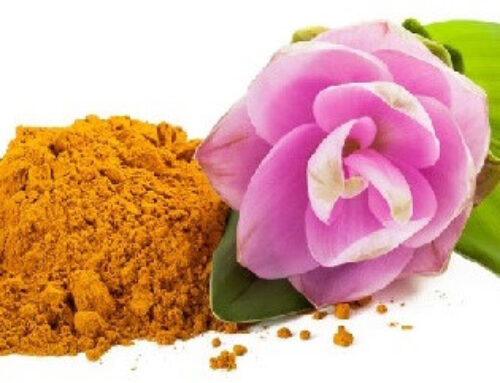Supplementation can cure chronic disease and boost your overall health. Our food supply has fewer nutrients in it now than ever before and many people can benefit from improving their diet with organic, food-based supplements.
The supplement business is one of the fastest growing industries in the world. In 2012 it was worth 32 billion dollars and it is expected to exceed 60 billion by 2021. Clearly, our population recognizes the benefits of supplementation and how people with health issues can make drastic improvements with the proper use of supplementation. This is a big problem for the pharmaceutical industry. It is well known they have been lobbying for control of this industry for decades and feel supplementation should fall in their domain. And, after all, there is a lot of money at stake which drives this push.
Using supplements to augment our American diet is a great way to ensure better nutrition. And better nutrition equates to better health, as nutrients are the building blocks of our body. One might wonder why, if we are eating well, do we need supplements? It is difficult to eat a truly healthy diet because our food is less nutritious now than it has ever been. Nowadays, our food is grown in severely depleted soil. Our farming practices are failing us. Healthy soil is a living organism and needs to be nurtured and fed with composted plant matter and animal manure. Healthy plants live with trillions of microbes in a healthy soil ecosystem. Soil organisms make minerals and micronutrients available for the plant to take up with its roots, making the fruit or vegetable more nutritious. Unfortunately, this isn’t how our modern farming system works anymore. (See my article: The Wisdom of Our Ancestors.) Chemical fertilizers are applied to our fields, making the plants look beautiful but decreasing the soil’s nutrient levels. Farmers used to rotate their crops, one year planting corn and the next beans, to ensure nutrients were replaced but this rarely happens in conventional farming (1). Instead, we pour fertilizer on top of our food in an effort to “fix” the damaged soil. This has significant implications on the nutrition of our crops. A Kushi Institute analysis compared nutrients in crops from 1975 to 1997 and found that calcium levels had dropped 27%, vitamin A levels 21%, vitamin C levels 30% and iron levels had dropped a shocking 37% in 22 years (2). Decades of irresponsible farming practices have left our fields sterile, the microbes in the soil destroyed by chemicals.
The most commonly used chemical is Roundup®, which is registered with the EPA as an antibiotic (and classified as a probable human carcinogen by the World Health Organization) (3). Antibiotics like Roundup® kill both good and bad microbes, depleting even more nutrients from the soil. Just like humans, plants can become nutrient deficient. Most of us are not getting enough nutrients for optimum health because the nutrients are not in our food to begin with and the low-nutrient foods we do have are processed into nutrient-void food products.
It is important to use careful supplementation to close the gap between nutrient-depleted foods and our health needs. Supplementation can cause amazing health changes in people who are struggling with chronic health issues. But, supplementation will be a waste of money if you are not willing to increase the levels of healthy foods in your diet and cut out the foods that are causing your health to decline in the first place. Supplements are for supplementing and that means supplementing a healthy diet! I grew up thinking that if I ate enough of the right kind of healthy foods I wouldn’t need to take vitamins. I now know even a truly healthy diet can lack in nutrients.
A very common problem I see is lowered or suppressed immunity. These are the people who get colds and flu bugs quite easily. Vitamin C is a wonderful option for building back up the immune system. I take at least 2 grams a day and quite a bit more if I feel like I might be fighting something. B vitamins are our stress vitamins; when we are under stress we use up our B stores very quickly. Supplementing with a good-quality B complex while dealing with a stressful period is a great idea.
So, yes, I do suggest the use of supplements with my clients when we are working together, based on what their nutritional or health needs are. I am admittedly a supplement snob, however, and I won’t use just any supplements. I prefer those that are based in the form of concentrated whole foods and organic dried herbs. Why waste your money and effort on supplements that won’t do the job? Your supplements should be of the highest quality and pass strenuous testing.
Many people think supplements are just not necessary and some think supplements can be downright dangerous but I have to take a stand for their appropriate use. The supplement industry is known for not having the best regulations and there are cheap, crummy supplements on the market. Some manufacturers have bad ethics regarding what they put into their products. Some products are missing ingredients that are on the label or are too old to be effective. Some manufacturers make unfounded claims about their supplements and some supplements are contaminated with toxic residue from sprays and from heavy metals. But, I want to make a case for the use of supplements. Supplementing can make the difference between getting better from an illness and languishing for years with a chronic illness.
Work with a practitioner who can guide you in choosing the correct supplement for your particular health issues. And, although I recommend getting guidance to fine-tune your supplement program, it never hurts to take a high-quality, organic, food-based multi vitamin. It’s just good insurance. Taking a bunch of supplements without really being educated can be a problem with diminishing returns. Get guidance and save money.
Big Pharma Wants your Supplements!
The pharmaceutical industry would love to take control of the supplement production because supplements are very popular and the industry has few regulations. But, moving the supplement industry under the pharmaceutical umbrella would be a huge mistake. I really believe the most important human right we have is the right to choose—our food, drugs and our supplements. If Big Pharma took control of our access to supplements, we would lose our freedom of choice. Supplements are really very safe, especially when you compare them to the use of chemical-based pharmaceutical drugs, which many studies show take the lives of over 100,000 people a year (4). Yearly deaths from supplements, studies show, are nonexistent (4, 5, 6). And the best part about using supplements is that they work. I don’t see drugs healing people, only treating symptoms and keeping people in a cycle of sickness.
Also see my article: Big Pharma: A Big Problem.
Cited References:
- Rodale Institute. The key to keeping a rich vegetable patch. Rodale Institute; April 15, 2011. Accessed September 2016. Available here.
- Landsman, Jonathan. The untold fruit and vegetable scandal. Natural Health 365; December 16, 2013. Accessed September 2016. Available here.
- Before it’s News. Main ingredient in Monsanto’s Roundup, patented as an antibiotic, destroying GI tract. Before it’s News; August 20, 2014. Accessed September 2016. Available here.
- Perdomo, Daniela. 100,000 Americans die each year from prescription drugs, while pharma companies get rich. Alternet; June 24, 2010. Accessed September 2016.
- Dr. Mercola. Dietary supplements: over 60 billion doses a year and still not one death, but still not safe? Mercola.com; April 23, 2012. Accessed September 2016. Available here.
- Saul, Andrew. No deaths from vitamins, minerals, amino acids or herbs. Orthomolecular Medicine; January 19, 2010. Accessed September 2016. Available here.










